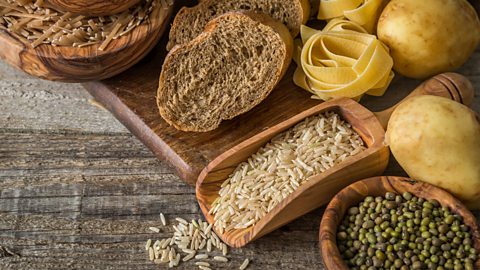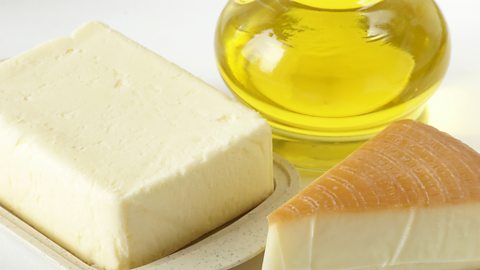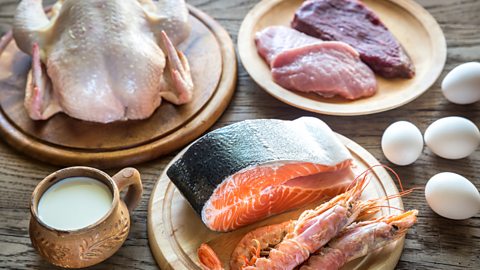Biological molecules
The food we eat – our diet – is made up of different biological molecules which give us energy and contain chemicals we need to grow and repair ourselves and help our cells function in our body.
Carbohydrates and fats are made up of carbon, hydrogen and oxygen.
Proteins contain carbon, hydrogen, oxygen and nitrogen.
Carbohydrates
Carbohydrates provide energy. There are two types - simple and complex.
Simple carbohydrates are sugars, like glucose and lactose. They are a fast acting source of energy, like biscuits or energy bars.
Complex carbohydrates are a source of slow release energy, like rice and pasta.

Cellulose, starch and glycogen are complex carbohydrates. They are long chain of sugars joined together.
- Cellulose – is found in plant cell walls and cannot be digested by humans. However, as fibre, it helps the muscles of the intestinal wall push food through the digestive system
- Starch – is broken down by digestive enzymes into glucose, which can be used by cells to make energy
- Glycogen – is a carbohydrate store within the human body and can be converted into glucose when levels are low
Fats/lipids
Fats are a store of energy, providing double the energy that carbohydrates and proteins do.
They are made up of fatty acids and glycerol.
Foods high in fat include cheese, butter and oils.

Proteins
Protein is used for the growth and repair of cells and can be used as a source of energy if carbohydrate and fat reserves are low.
Proteins are made up of long chains of amino acids.
After digestion amino acids are absorbed into the bloodstream and brought to cells that reassemble them into proteins needed by the body (e.g. enzymes).
Foods high in protein include fish and eggs.
